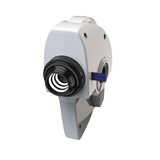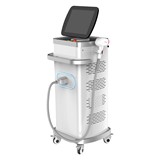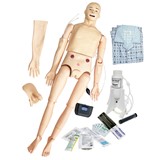”Unfortunately, many of the older Australians in aged care homes cannot communicate their discomfort and are unable to look after their own dental health,” Elliot said.
“This plan is about reducing potential pain, malnourishment and discomfort for older Australians,” the Minister for Ageing, Justine Elliot said.
The trained staff member will educate other aged care workers to help maintain the teeth of nursing home residents.
The plan includes a “hands on” training program on daily oral hygiene for aged care workers to help older Australians retain their teeth and reduce illness related to dental health.
“The key to improving dental care is to educate aged care workers on how to assist with residents’ oral and dental health,” Elliot said.
The Australian Dental Association research shows that in 1979, 60 per cent of residents had no natural teeth and by 1989, it had fallen to 44 per cent. Within 10 years, it is expected to drop to 20 per cent.
“In the past, most people in nursing homes had dentures and thousands now have their own teeth,” Elliot said.
“The average age of entry into an aged care home is now 83.2 years and many residents have retained their teeth.
“They are part of the generation that grew up before fluoridisation, and therefore, their level of dental can be poor, but they still have their actual teeth,” Elliot said.
Elliot has announced details of the Nursing Home Oral and Dental Health Plan at a cost of $3 million over two years. It includes:
- Establishing – for the first time – a nationally consistent approach to dental assessments in the ACAT (Aged Care Assessment Team) process. The oral health assessment tool is to be included in the proposed set of assessment tools for ACATs;
- For the first time, a specially developed national training package will be provided later this year.
The training package covers practical advice to help aged care workers, such as:
- Providing standard protective oral hygiene, including proper brushing, preventing gum disease and reducing tooth decay and ulcers;
- Care, removal and cleaning of dentures;
- Responding to dry mouth (Xerostomia) – a side effect of some medications;
- Brushing techniques for residents with challenging behaviour, perhaps as a result of dementia, who may refuse to have their faces touched, bite the toothbrush or are unable to rinse;
- Helpful oral desensitisation techniques to help aged care workers relax the resident to allow brushing such as body language and a process where the aged care worker begins the brushing and helps the resident to finish;
- Distraction techniques especially for people with dementia, which will allow aged care workers, to brush the residents’ teeth; and
- Dental care for people at the palliative stage.
- Examining the results of the $1.3 million Better Oral Health in Residential Care project currently being trialled in seven aged care homes in South Australia, NSW and Victoria through the Encouraging Best Practice in Residential Aged Care (EBPRAC) program. These results would be incorporated into the training programs. The project covers:
- Oral health assessment;
- Oral health care planning;
- Daily oral hygiene; and
- Dental referrals.
- Practical training resources and courses for aged care workers and additional support for those in remote areas through electronic delivery of the package;
- Considering opportunities to include training in nationally accredited training for aged care workers to give them a recognised qualification; and
- Review of the Aged Care Accreditation Standards as they relate to oral and dental care and the process by which they are assessed – as part of the overall review of the Aged Care Accreditation Standards and Processes.
On December 4, Elliot asked the Department of Health and Ageing’s Office of Aged Care Quality and Compliance to examine ways to improve dental and oral care.
Since then, there have been consultations with the Australian Dental Association, South Australian Dental Service and dentists from the University of Western Australia, the University of Melbourne’s Melbourne Dental School and the Griffith University. (Further consultations will be held with the dental and aged care sector around the plan’s delivery.)
“In the last few months, I have met with committed dentists and health experts working in nursing homes and have taken their views on board,” Elliot said.
Under the Aged Care Act, nursing home operators have a legal obligation to provide proper oral and dental health care to residents.
In other areas, the Australian Government is seeking to implement its election commitment for a $290 million Commonwealth Dental Health Programme to help reduce public dental waiting lists. (However, funding for this programme is not yet available due to Coalition actions in the Senate.)
State and Territory Governments also have a responsibility for the provision of dental services to pensioners and healthcare card holders.














-160x160-state_article-rel-cat.png)






